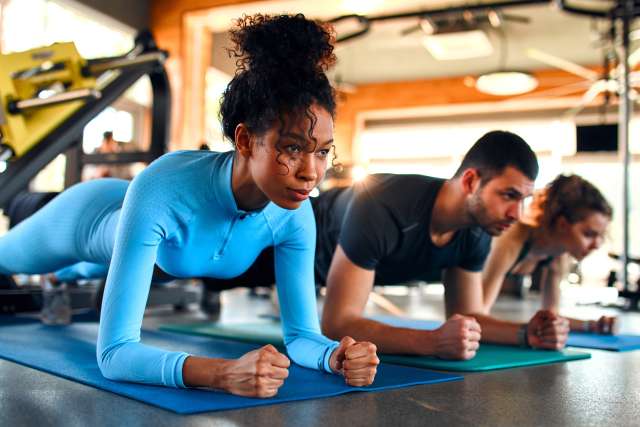Step right up! It’s the miracle cure we’ve all been waiting for. It can reduce your risk of major illnesses, such as coronary heart disease, stroke, type 2 diabetes and cancer and lower your risk of early death by up to 30%. It’s free, easy to take, has an immediate effect and you don’t need a GP to get some. Its name? Exercise. Check physical activity guidelines for: Exercise is the miracle cure we’ve always had, but for too long we’ve neglected to take our recommended dose. Our health is now suffering as a consequence. This is no snake oil. Whatever your age, there’s strong scientific evidence that being physically active can help you lead a healthier and happier life. People who exercise regularly have a lower risk of developing many long-term (chronic) conditions, such as heart disease, type 2 diabetes, stroke, and some cancers. Research shows that physical activity can also boost self-esteem, mood, sleep quality and energy, as well as reducing your risk of stress, clinical depression, dementia and Alzheimer’s disease. Given the overwhelming evidence, it seems obvious that we should all be physically active. It’s essential if you want to live a healthy and fulfilling life into old age. It’s medically proven that people who do regular physical activity have lower risk of: To stay healthy, the UK Chief Medical Officers’ Physical Activity Guidelines, on GOV.UK, state that adults should try to be active every day and aim to do at least 150 minutes of physical activity over a week, through a variety of activities. For most people, the easiest way to get moving is to make activity part of everyday life, like walking for health or cycling instead of using the car to get around. However, the more you do, the better, and taking part in activities such as sports and exercise will make you even healthier. For any type of activity to benefit your health, you need to be moving quick enough to raise your heart rate, breathe faster and feel warmer. This level of effort is called moderate intensity activity. If you’re working at a moderate intensity you should still be able to talk but you won’t be able to sing the words to a song.Health benefits
What counts?

